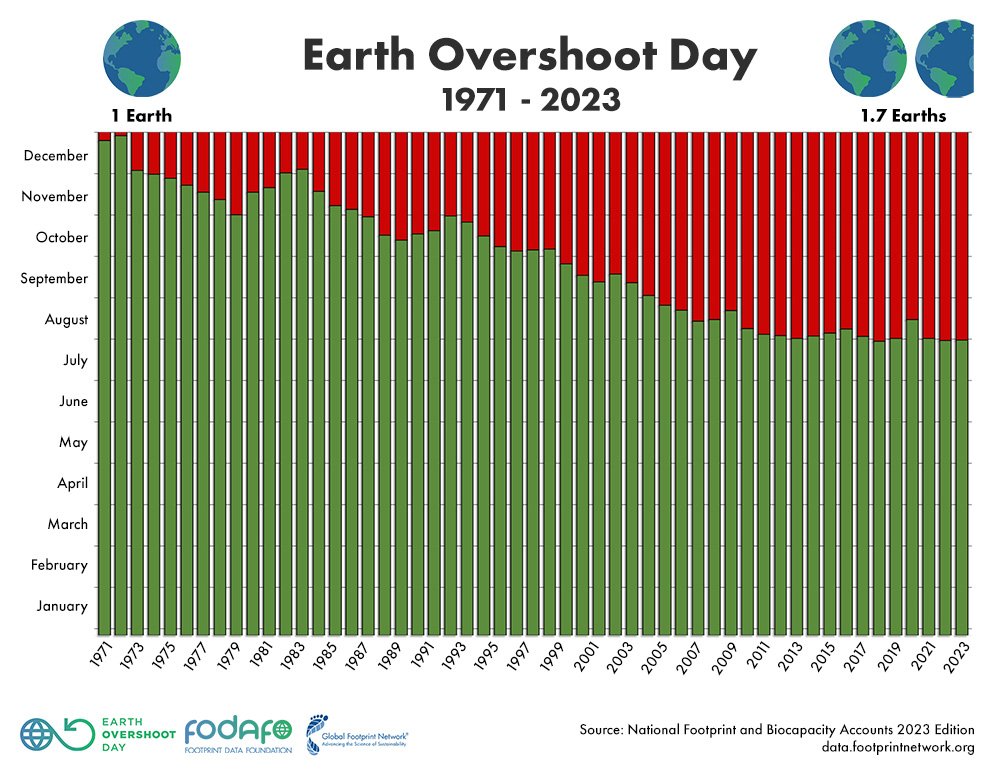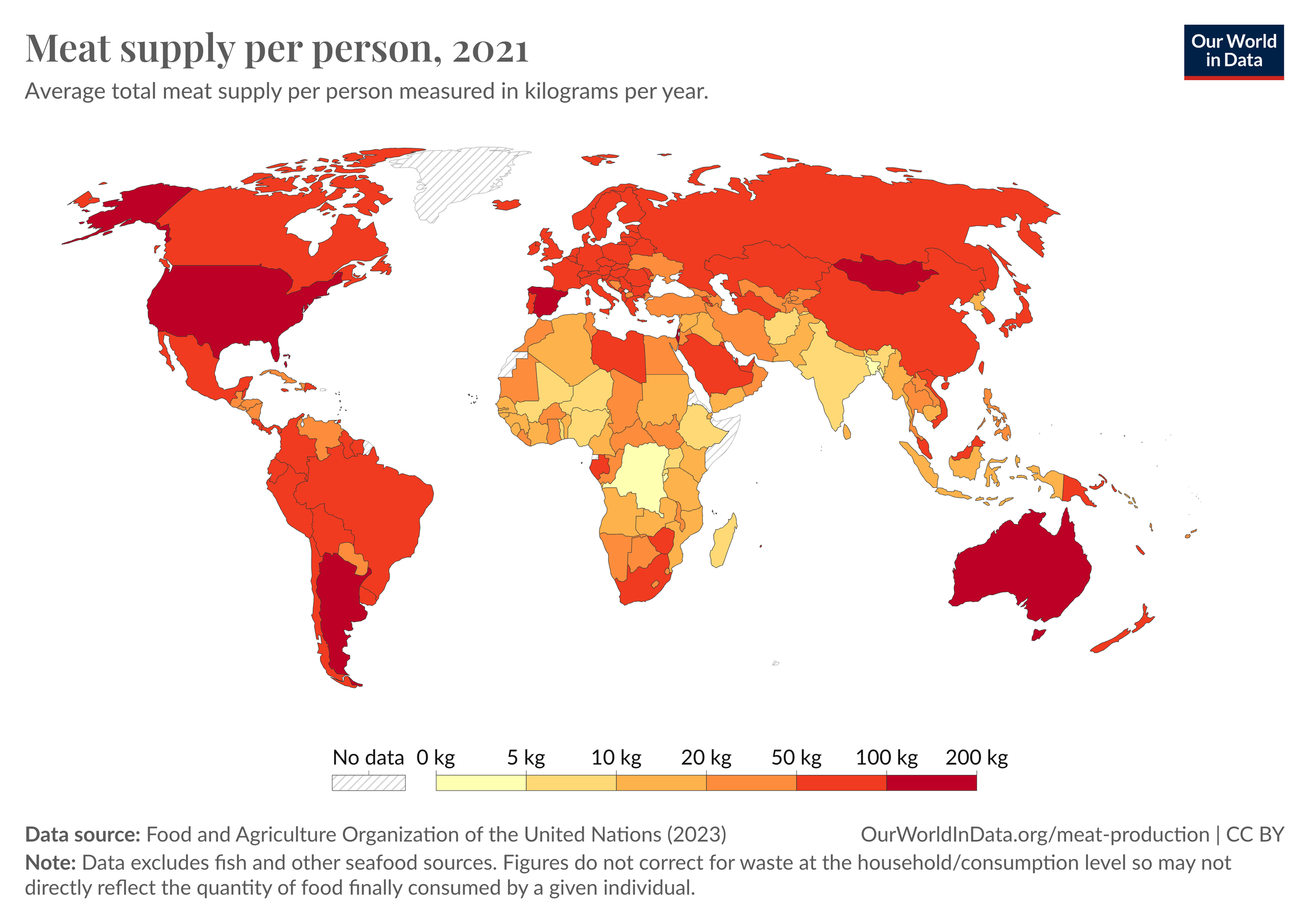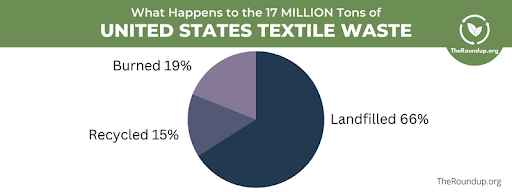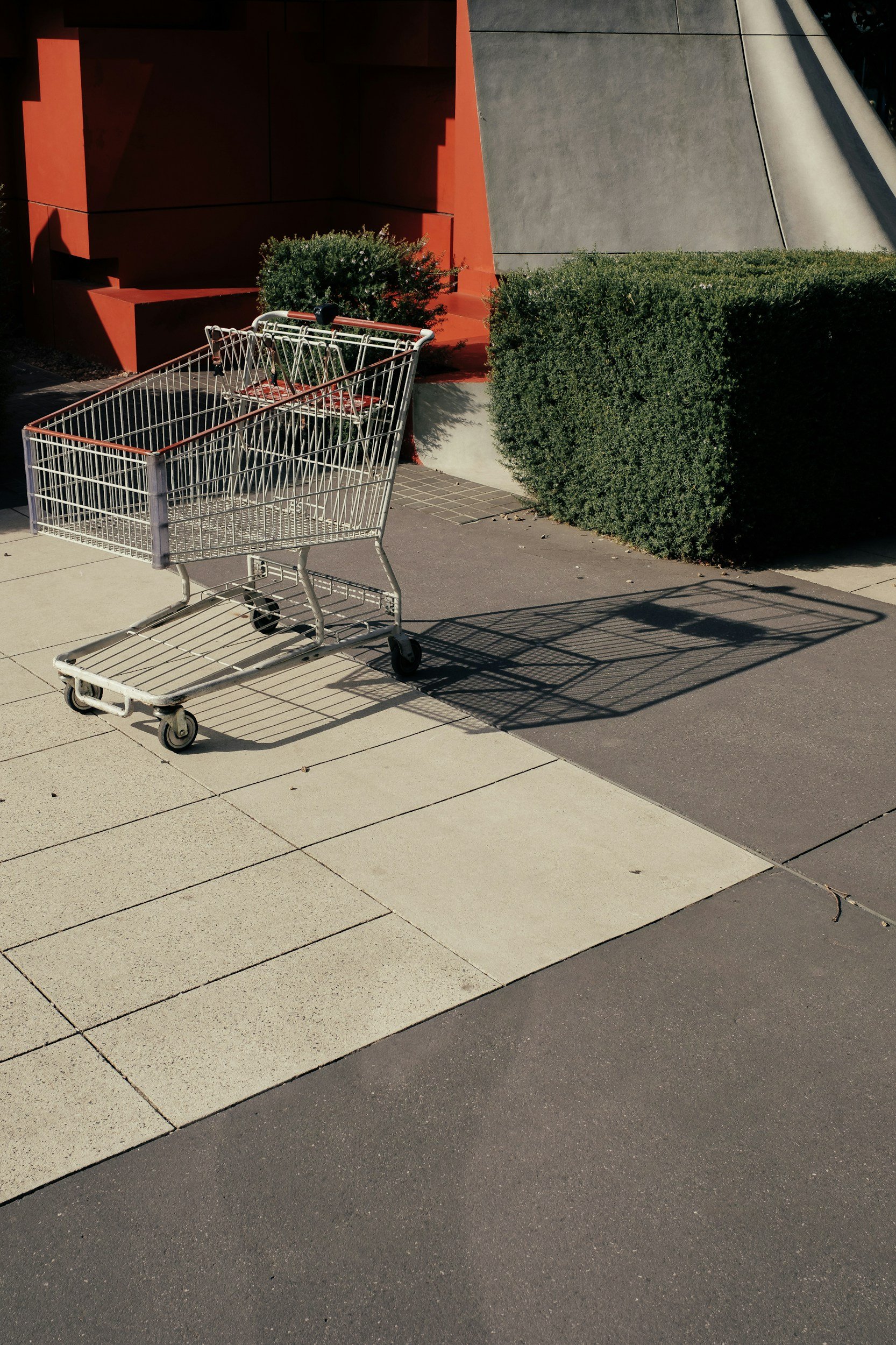The facts.
August 2, 2023 – July 28, 2022 – July 29, 2021
What do these dates have in common? They are the dates when the world hit Earth Overshoot Day.
At Kindhub, we’ve discussed overconsumption before, in the context of building a sustainable life and it is an important day. It is the day when we humans have consumed more ecological resources than Earth can regenerate in a year.
We now need 1.7 earths to meet our consumption needs.
This is the definition of overconsumption and it’s a big problem in today’s world. The good news is that there is a lot that we can do to make a difference.
The big picture.
What is overconsumption?
As human beings, it’s natural that we consume goods and services such as food, clothing, and energy. These naturally extract resources from the planet, the challenge is however, when we use these resources faster than they can be replenished. For example, using trees to make paper or furniture faster than the trees can regrow.
Consumption naturally increases as our population grows but in reality, our consumption is increasing much faster than simple population growth may explain. Why? Because of our changing societal expectations and norms around things like purchasing goods, replacing items (instead of repair) and the need for variety and increased options.
Societal trends and the marketing of new products encourages people to buy the latest versions of gadgets, fashion, and household items, even when their existing ones are still functional. It’s often cheaper to replace something when it is broken, even if we would like to repair it. Technology requires us to constantly upgrade our devices so that they are functional to keep up with our fast paced world. Consumer culture equates success and happiness with material possessions. This worsens this issue. Let’s look at some examples:
We are producing and wasting more food than ever.
Meat is a key source of protein worldwide. From 1960 to 2022, Europe’s meat output nearly doubled, and North America’s output increased 2.5 times. While population growth partly explains this, per capita meat consumption in high-income countries has also surged—from 123 pounds per year in 1961 to 199 pounds in 2020.
On the other hand, one-third of all food produced globally is wasted annually, and one-fourth of animals slaughtered for food are never consumed, underscoring a major issue of overconsumption.
Both meat production (beef and lamb) and food waste release methane, a greenhouse gas (GHG) which is a potent cause of global warming. Animal agriculture now accounts for ⅓ of all GHG.
We are buying and throwing more clothes than we need
An average American throws away 81.5 lbs of clothes every year. On a global scale, we discard 92 million tons of clothes-related waste yearly. An equivalent of a garbage truck full of clothes is dumped or incinerated every second.
Thanks to social media, fast fashion and ultra-fast fashion brands, we are buying 60% more clothing than we did in 2000, but we are wearing approximately 40% less. We only wear 10% of the clothes in our closet on a day-to-day basis, and 60% of our clothes are worn for less than a year.
It’s not surprising that the fashion industry is responsible for approximately 10% of global greenhouse emissions and 20% of all the wastewater generated. If this trend continues, the fashion industry’s emissions will rise by 50% by 2030 compared to 2018.
But does having more stuff actually make us happier?
Naturally, when we buy new things we are happy for a while, but the novelty wears off, leading us to buy more. This cycle can continue indefinitely and is the basis of clever marketing.
However, this Time article highlighted research which shows that having more material possessions does not lead to greater satisfaction. In fact, it can cause anxiety, insecurity, and emptiness. They report, “The connection between our stuff and our self-esteem is a two-way street: If we become less materialistic, our well-being will improve. If our well-being improves, we tend to be less materialistic.”
In fact, Gretchen Rubin argues that the secret to happiness is through our five senses.
Are all of us overconsuming?
Definitely not! Only 20% of the population consumes 80% of the world’s resources and unsurprisingly, richer developed nations like the United States and Canada are driving it. The differences are obvious when you look at country overshoot days. Here is a comparison of the highest vs lowest consumers for 2024:
The choices
Modern society rewards and promotes overconsumption but as individuals, we can rise above it. Here are some ideas.
Life-focused
If your focus is on being kind to living things and value a life-centric approach, you can make these changes;
-
Support ethical clothing manufacturers that do not engage in inhumane worker treatment.
-
Track your food portions – reduce waste esp meat and dairy. Reducing your chicken portion from 5 oz to 3 oz and replacing this with beans or vegetables will increase your fiber, be healthier for you and can save 15 chickens yearly.
Earth-focused
If your focus is on being kind to the earth and If you value an earth-centric approach, you can make these changes;
-
Shop sustainable fabrics like hemp, bamboo and recycled fabrics that are planet friendly and avoid the ones like leather that are resource intensive and polluting.
-
Wash clothes in cold water which can reduce the energy consumed by 90%.
-
Switch to plastic-free alternatives for your beauty and personal care products which could eliminate approximately 8 to 10 pounds of plastic each year.
Holistic
If your focus is balancing being kind to life and earth and value a holistic approach, you can make these changes;
-
Buy fewer but better quality clothes. They might cost more upfront but they will last longer and have a lower cost per wear.
-
Go meat free one day a week – if each person in developed areas like North America and Europe lightened their consumption, the additive effect will be a big step to reducing global inequality.
-
Track which beauty products you use vs waste. Moving to fewer products will save time, reduce stress due to clutter and decision fatigue, while reducing your exposure to potentially harmful chemicals and allergens.





